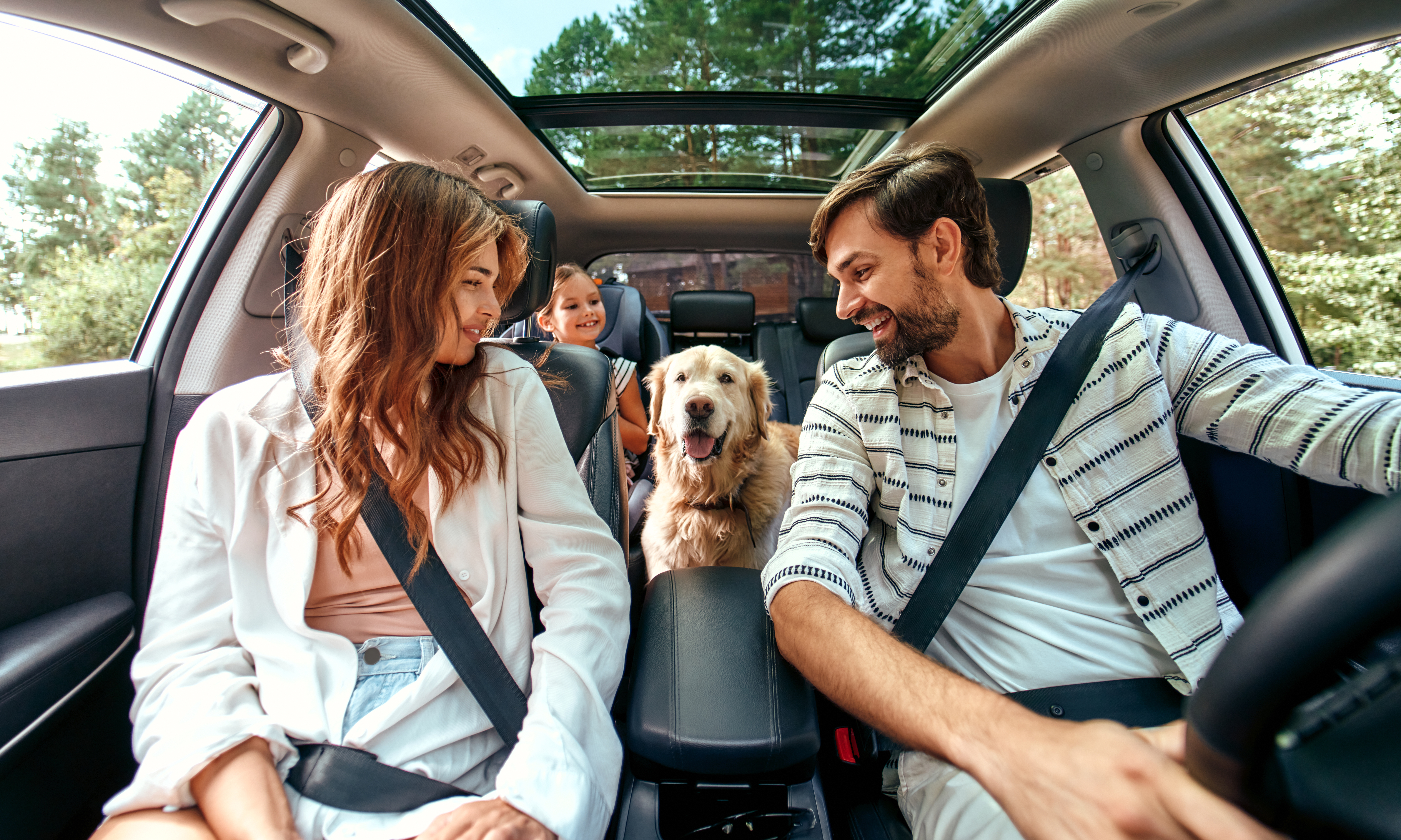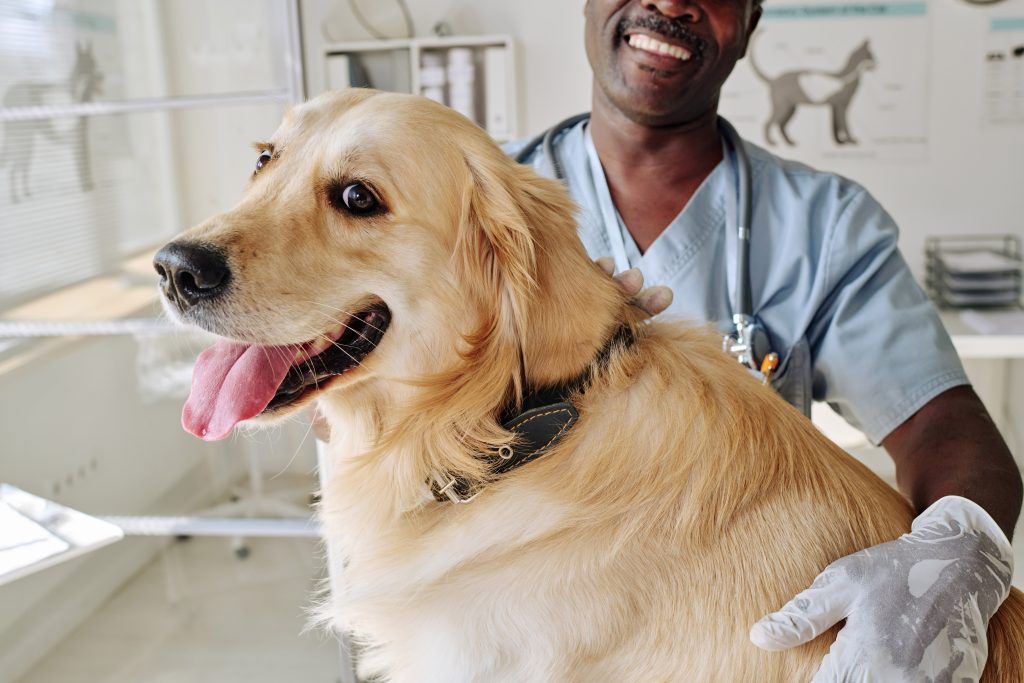Introduction
Choosing the right dog is not just about bringing a pet into your home; it’s about welcoming a new member into your family. This decision, often underestimated, can significantly impact your life and the life of your new companion. The right dog can bring immense joy, companionship, and a sense of fulfillment, while an incompatible match can lead to frustration for both the dog and the owner.
The importance of this choice cannot be overstated. A dog’s presence can alter your daily routine, affect your financial budget, and even influence your physical and mental health. Therefore, it’s crucial to make an informed decision that considers various factors, ensuring a harmonious relationship between you and your canine friend.
Some of our latest products...
-
Bandanas pour chiens
Bandana pour chien Liverpool FC
Liste séparée par des virgules des champs méta qui ne doivent pas être copiés. USD Choix des options Ce produit a plusieurs variantes. Les options peuvent être choisies sur la page de produit -
Bandanas pour chiens
Bandana pour chien Manchester City
Liste séparée par des virgules des champs méta qui ne doivent pas être copiés. USD Choix des options Ce produit a plusieurs variantes. Les options peuvent être choisies sur la page de produit -
Bandanas pour chiens
Bandana pour chien Manchester United
Liste séparée par des virgules des champs méta qui ne doivent pas être copiés. USD Choix des options Ce produit a plusieurs variantes. Les options peuvent être choisies sur la page de produit -
Colliers pour chiens
Collier pour chien Pittsburgh Steelers
$ 20.52 USD Choix des options Ce produit a plusieurs variantes. Les options peuvent être choisies sur la page de produit
When contemplating which dog to bring into your life, several key factors should be considered. These include assessing your lifestyle, understanding different dog breeds and their needs, considering the age of the dog, and recognizing the financial and time commitments involved. Each of these elements plays a vital role in determining the most suitable dog for your situation.
Your lifestyle, for instance, will greatly influence the type of dog that’s best for you. Active individuals might find joy in high-energy breeds that thrive on exercise and outdoor activities, while those with a more sedentary lifestyle might prefer a dog with lower energy requirements. Similarly, your living space – whether it’s a small apartment or a house with a yard – will also dictate the most appropriate breed size and energy level.
Understanding different dog breeds is another critical aspect. Each breed comes with its unique set of characteristics, behaviors, and care requirements. Researching and gaining knowledge about various breeds can help you align your expectations with the reality of caring for a specific type of dog.
Furthermore, the decision between adopting a puppy or an adult dog carries its own set of considerations. Puppies, while offering the opportunity to shape their behavior from a young age, require a significant amount of time, patience, and training. Adult dogs, on the other hand, often come with established behaviors and may adapt more quickly to a new home.
The financial aspect is also a key factor. Owning a dog involves various expenses, including food, veterinary care, grooming, and other necessities. These costs can vary widely depending on the breed and size of the dog.
Lastly, the commitment of time and energy is something that potential dog owners must be prepared for. Dogs require daily care, exercise, and attention, and this commitment can span many years, depending on the lifespan of the breed.
In this comprehensive guide, we will delve into each of these factors in detail, providing you with the necessary information to make an informed decision on which dog is right for you. From understanding your lifestyle to considering the financial implications, we will cover all the essential aspects to help you find the perfect canine companion for your life.
Understanding Your Lifestyle
When deciding which dog is right for you, a thorough assessment of your lifestyle is crucial. This introspection ensures that your new companion fits seamlessly into your daily life, making the experience enjoyable and fulfilling for both of you.
Firstly, consider your daily routine. Are you someone who spends most of the day at work, or do you have a flexible schedule that allows you to be home more often? Dogs, as social creatures, require attention and interaction. If your job demands long hours away from home, a dog that can tolerate being alone for extended periods is essential. Breeds known for their independence, such as the Shar Pei or Basenji, might be suitable in such cases. Conversely, if you work from home or have ample time to dedicate, you might opt for a breed that thrives on human interaction, like the Labrador Retriever or the Cavalier King Charles Spaniel.
Your activity level is another significant factor. If you’re an active person who enjoys outdoor activities, a high-energy dog like a Border Collie or a Husky sibérien could be a perfect match. These breeds require regular, vigorous exercise, aligning well with an active lifestyle. On the other hand, if you prefer a more relaxed lifestyle, breeds like the Bouledogue or the Basset Hound, known for their laid-back nature, might be more appropriate.
The size of your living space also plays a vital role in your choice. Large breeds typically need more space to move around and are better suited to homes with yards. Breeds like the German Shepherd or the Golden retriever are ideal for such environments. In contrast, if you live in an apartment or a smaller home, smaller breeds like the French Bulldog or the poméranien are more adaptable to limited spaces.
Consider, too, the people who share your living space. If you have children, a dog with a gentle and patient temperament is preferable. Breeds known for their affinity with children, such as the Beagle or the Boxer, can be excellent family pets. Similarly, if you have other pets, consider how a new dog might interact with them. Some breeds are more sociable and can easily adapt to living with other animals, while others might be more territorial or aggressive.
Lastly, think about your future plans. Dogs can live for many years, and your life circumstances can change. Factors like potential moves, changes in work schedule, or family dynamics should be considered. Choosing a dog that can adapt to various situations and remain a beloved part of your family through life’s changes is essential.
In summary, understanding your lifestyle is about matching your habits, preferences, and living situation with a dog’s characteristics and needs. By doing so, you ensure a harmonious relationship filled with mutual happiness and understanding.
Knowing the Breeds
Selecting the right dog breed is a pivotal step in ensuring a harmonious match between you and your new pet. Each breed possesses distinct characteristics, behaviors, and care requirements, making some more suited to certain lifestyles than others. Understanding these nuances is key to finding a dog that aligns with your life.
Breeds vary significantly in size, temperament, energy level, and maintenance needs. For instance, larger breeds like the Saint-Bernard or Great Dane require ample space and are often surprisingly gentle giants, suitable for families with enough room to accommodate them. On the other hand, small breeds like the Yorkshire Terrier or Chihuahua are great for smaller living spaces but can be feisty and require delicate handling.
Energy level is another critical factor. Active breeds like the Australian Shepherd or Jack Russell Terrier are perfect for individuals or families who lead an active lifestyle and can provide ample exercise and mental stimulation. Conversely, breeds like the Shih Tzu or Maltese are more laid-back and require less vigorous activity, making them ideal for those with a more relaxed lifestyle.
When it comes to temperament, some breeds are known for their friendly and outgoing nature, like the Golden Retriever or Labrador Retriever, making them excellent family pets. In contrast, breeds like the Shiba Inu or Chow Chow are more independent and reserved, potentially a better match for someone seeking a less demanding companion.
Maintenance needs are also a consideration. Breeds with long coats, such as the Afghan Hound or the Samoyed, require regular grooming, which can be time-consuming and costly. Short-haired breeds like the Beagle or Boxeur, however, are generally lower maintenance in terms of grooming.
To illustrate these points, let’s consider a few case studies:
- A young, active individual living in a city apartment might find a perfect companion in a Bulldog français. This breed is adaptable to apartment living and requires moderate exercise, fitting well into a busy urban lifestyle.
- A family with young children and a spacious backyard might opt for a Labrador Retriever, known for its friendly nature and love of play, making it an excellent addition to a lively household.
- An older couple looking for a low-energy companion might find joy in a cavalier roi Charles Spaniel, a breed known for its gentle and affectionate demeanor, suitable for a quieter lifestyle.
In summary, knowing the breeds involves understanding the unique traits and needs of different dogs and matching them with your lifestyle. This knowledge is crucial in making an informed decision that leads to a fulfilling and lasting relationship with your new pet.
Choosing Between a Puppy or an Adult Dog
When bringing a dog into your life, one of the most significant decisions is whether to adopt a puppy or an adult dog. Each choice comes with its own set of advantages and challenges, and understanding these can help you make a decision that best suits your lifestyle and preferences.
Pros and Cons of Adopting a Puppy
Adopting a puppy allows you to experience the joys of watching a young dog grow and develop. This period is crucial for bonding and training, offering you the opportunity to shape your puppy’s behavior, social skills, and temperament. Puppies are like blank slates; with proper training and socialization, they can adapt well to various environments and routines.
However, puppies require a considerable amount of time, patience, and dedication. They need to be trained in basic obedience, house manners, and socialization, which can be a time-consuming and sometimes frustrating process. Puppies also have higher energy levels and need more attention and playtime. Additionally, they go through teething phases, which can lead to chewing on furniture and other items.
Pros and Cons of Adopting an Adult Dog
On the other hand, adopting an adult dog can be a more straightforward experience. Adult dogs often come with some level of training and are generally less energetic and demanding than puppies. They tend to have established temperaments, making it easier to find a dog that matches your lifestyle. For those looking for a more predictable and less time-intensive pet experience, adult dogs can be an excellent choice.
However, adult dogs may come with their own set of challenges. They can have ingrained habits or behaviors from their past that might require correction or adaptation. In cases of rescue or shelter dogs, they may have experienced trauma or neglect, necessitating extra patience and care to help them adjust to a new home.
What to Expect in the First Weeks and Months
Whether you choose a puppy or an adult dog, the first weeks and months will be a period of adjustment for both you and your pet. For puppies, this time will involve intensive training, establishing a routine, and lots of socialization. For adult dogs, the focus will be on helping them acclimate to their new environment, understanding their personality, and building trust.
In both cases, it’s essential to provide consistent, positive reinforcement and be patient as your new companion learns to navigate their new life with you. This period is crucial in laying the foundation for a long and happy relationship with your dog.
In conclusion, the decision between a puppy and an adult dog depends on various factors, including your time availability, patience level, and lifestyle. Both choices have the potential for immense joy and rewarding companionship, but it’s important to realistically assess your situation and capabilities before making this significant commitment.
Considering Rescue Dogs
Adopting a rescue dog can be one of the most rewarding experiences for a potential dog owner. Rescue dogs come from various backgrounds – some are relinquished by previous owners, while others are saved from neglect or abuse. Choosing to adopt a rescue dog not only provides a home for a dog in need but can also be a fulfilling journey for the adopter.
The Benefits of Adopting a Rescue Dog
One of the most significant benefits of adopting a rescue dog is the sense of fulfillment that comes from giving a second chance to a deserving animal. Many rescue dogs are incredibly loving and loyal, often forming deep bonds with their new owners. Additionally, adopting from shelters contributes to the fight against animal homelessness and the unethical breeding industry.
Rescue dogs often come with a level of maturity. Many are already house-trained and have some basic obedience skills, which can make the transition into your home smoother. Furthermore, shelters and rescue organizations often assess the dogs’ temperaments and can guide you in choosing a dog that fits your lifestyle.
Challenges of Adopting a Rescue Dog
However, adopting a rescue dog can also come with challenges. Some rescue dogs may have behavioral issues stemming from their past experiences, requiring patience and consistent training to address. They may also need time to adjust to a new environment and build trust, especially if they have experienced trauma or neglect.
It’s important to approach the adoption of a rescue dog with realistic expectations. Providing a stable, loving environment and being prepared to work through any issues with training and socialization are key to helping a rescue dog thrive.
Stories of Successful Rescue Dog Adoptions
There are countless heartwarming stories of successful rescue dog adoptions. For example, consider the story of Max, a once-timid shelter dog who blossomed into a confident, joyful companion in his new home. Or Bella, a rescue who had experienced neglect but went on to become a beloved therapy dog, bringing comfort to many.
These stories highlight the transformative power of love, patience, and care. They serve as a testament to the resilience of dogs and the profound impact a nurturing home can have on a rescue animal.
In summary, while adopting a rescue dog can come with its own set of challenges, the rewards are often immeasurable. These dogs can bring immense joy, love, and gratitude into your life. If you’re considering a rescue dog, approach the decision with an open heart and a commitment to providing a nurturing, understanding home.
Financial Implications
Welcoming a dog into your life is not just a significant emotional commitment but also a financial one. Understanding the financial implications of dog ownership is crucial in ensuring that you are fully prepared for this long-term responsibility. The costs can vary significantly depending on the breed, size, and health of the dog, as well as your personal preferences for care.
Breakdown of Costs Associated with Different Breeds
The initial cost of acquiring a dog can vary widely. Purebred dogs from reputable breeders can be quite expensive, while adoption fees for rescue dogs are generally lower, often including vaccinations, spaying/neutering, and microchipping.
Beyond the initial cost, the breed of the dog can influence ongoing expenses. Larger breeds typically consume more food, and some breeds may have specific dietary requirements. Additionally, certain breeds are prone to specific health issues. For example, breeds like the Berger allemand or Golden Retriever may be predisposed to hip dysplasia, potentially leading to higher veterinary costs.
Ongoing Costs of Owning a Dog
The day-to-day expenses of dog ownership include food, routine veterinary care, grooming, and supplies such as leashes, collars, beds, and toys. High-quality dog food can be a significant expense, especially for larger breeds. Preventative veterinary care, including vaccinations, flea and tick prevention, and regular check-ups, is essential in maintaining your dog’s health but also adds to the cost.
Grooming costs can also vary. Breeds with long or specialized coats, like Poodles or Shih Tzus, may require regular professional grooming, while short-haired breeds might only need occasional grooming services.
Unexpected veterinary expenses, such as emergency care, surgeries, or treatment for illnesses, can be substantial. Pet insurance can help mitigate these costs, but it’s important to factor in the premiums when calculating the overall financial commitment.
Budgeting for Your Dog
Creating a budget for your dog’s expenses is a practical step in responsible pet ownership. It’s advisable to set aside funds for both routine care and unexpected costs. Additionally, consider the long-term financial commitment. Dogs can live for many years, and ensuring you can consistently provide for their needs is essential.
In conclusion, the financial aspect of dog ownership is a significant factor to consider. Being prepared for both the expected and unexpected costs ensures that you can provide a stable, loving environment for your dog throughout their life.
The Time and Commitment Required
Owning a dog is a rewarding experience, but it also demands a significant investment of time and commitment. This responsibility extends throughout the dog’s life, which can span many years. Understanding and preparing for this commitment is crucial in ensuring a fulfilling and responsible dog ownership experience.
Daily, Monthly, and Yearly Commitments
On a daily basis, dogs require time for feeding, exercise, play, and companionship. Exercise is particularly crucial, as it keeps your dog physically healthy and mentally stimulated. The amount of exercise needed varies by breed, age, and health. For example, high-energy breeds like Border Collies require more exercise than more sedentary breeds like Bulldogs.
Monthly commitments include tasks like grooming, which can range from simple brushing to full grooming sessions, depending on the breed. Regular health maintenance, such as flea and tick prevention and nail trimming, also falls into this category.
Yearly commitments involve regular veterinary check-ups to ensure your dog’s health and vaccinations are up to date. These check-ups are crucial for early detection of potential health issues.
Long-Term Considerations
Owning a dog is a long-term commitment. The lifespan of a dog varies by breed and size, with smaller breeds generally living longer than larger ones. This means you could be committing to care for your dog for anywhere from 10 to 15 years, or even longer.
This long-term commitment also involves considering life changes such as moving, changes in job or family circumstances, and ensuring you can continue to provide for your dog through these changes.
The Emotional Commitment
Beyond the physical and financial aspects, there’s also a significant emotional commitment involved in dog ownership. Dogs become deeply attached to their owners and require not just physical care but also emotional support. They thrive on companionship and form strong bonds with their human families. This emotional investment is a crucial part of the relationship and requires time, patience, and understanding.
In conclusion, the time and commitment required to own a dog are significant but incredibly rewarding. It involves daily care, regular maintenance, and a long-term emotional and physical commitment. Prospective dog owners should consider these factors seriously to ensure they can provide a loving, stable home for their canine companion.
Impact on Mental and Physical Health
The decision to bring a dog into your life has far-reaching implications for both your mental and physical health. Numerous studies have shown that dog ownership can have profound health benefits, but it also comes with its own set of challenges and responsibilities that can impact your well-being.
Health Benefits of Owning a Dog
From a physical health perspective, dog owners often experience increased levels of physical activity. Walking a dog provides regular exercise, which can help in maintaining a healthy weight, lowering blood pressure, and reducing the risk of chronic diseases. The physical activities associated with dog care, such as playing and walking, also promote an active lifestyle.
Mentally, dogs have been shown to significantly impact their owners’ psychological well-being. They provide companionship, which can reduce feelings of loneliness and isolation. The bond between a dog and its owner can increase levels of oxytocin, often referred to as the ‘love hormone,’ which promotes feelings of joy, nurturing, and relaxation.
Dogs also offer emotional support and can be particularly beneficial for individuals dealing with depression, anxiety, or stress. The presence of a dog can provide a sense of calm and comfort. In fact, therapy dogs are widely used in various therapeutic settings to help individuals cope with mental health issues.
Potential Stress and Challenges
While the benefits are significant, it’s also important to acknowledge the potential stress and challenges associated with dog ownership. The responsibilities of caring for a dog can be time-consuming and sometimes overwhelming, especially for first-time owners or those with busy schedules.
Financial concerns, particularly unexpected veterinary bills or the costs of quality care, can also be a source of stress. Additionally, behavioral issues with a dog, such as excessive barking, chewing, or aggression, can create tension and require time and resources to address.
Mitigating the Challenges
To mitigate these challenges, prospective dog owners should thoroughly research and prepare for the responsibilities of dog ownership. This includes understanding the financial commitment, learning about dog behavior and training, and ensuring they have the time and energy to devote to a dog.
In summary, owning a dog can have a significant positive impact on your mental and physical health, offering companionship, increased physical activity, and emotional support. However, it’s important to be prepared for the responsibilities and potential challenges to ensure a healthy and happy relationship for both you and your dog.
Consulting Professionals
In the journey of choosing and caring for the right dog, consulting professionals can be invaluable. These experts, including veterinarians, dog trainers, and behaviorists, offer essential guidance and support, helping you make informed decisions and address any challenges that arise.
Role of Veterinarians
Veterinarians are crucial in ensuring the health and well-being of your dog. They provide regular health check-ups, vaccinations, and medical care. A veterinarian can also offer advice on nutrition, exercise, and preventive care to keep your dog healthy. For potential dog owners, a pre-adoption consultation with a veterinarian can provide insights into the health needs and considerations for different breeds or individual dogs.
Importance of Dog Trainers and Behaviorists
Dog trainers and behaviorists play a critical role in the behavioral development and training of your dog. They can help with basic obedience training, which is essential for a well-behaved pet, and address specific behavioral issues like aggression, separation anxiety, or excessive barking.
A professional trainer can also provide guidance on effective training techniques and help establish a positive and productive relationship between you and your dog. For those adopting puppies, puppy training classes are an excellent way to start on the right foot, offering both training and socialization opportunities.
Case Study: Consulting a Professional
Consider the case of a family who adopted a rescue dog, Bella, who displayed signs of anxiety and fearfulness. By consulting with a dog behaviorist, they were able to understand Bella’s behavior better and received tailored strategies to help her adjust to her new home. The behaviorist’s intervention made a significant difference, allowing Bella to become a relaxed and happy member of the family.
The Value of Professional Advice
Professional advice can be particularly beneficial in matching the right dog to your lifestyle and needs. For instance, a dog trainer or behaviorist can assess your living situation, daily routine, and experience with dogs to recommend suitable breeds or individual dogs.
In summary, consulting professionals is a vital step in responsible dog ownership. Veterinarians, trainers, and behaviorists can provide expert advice and support, helping you navigate the challenges of dog ownership and ensuring a healthy, happy relationship with your pet.
Dealing with Allergies
Allergies to pets, particularly dogs, are a common concern for many individuals. Understanding and managing these allergies is crucial for those who love dogs but also want to maintain their health and comfort.
Understanding Pet Allergies
Pet allergies are typically triggered by proteins found in a dog’s dander (skin flakes), saliva, and urine. These allergens can become airborne and cause symptoms such as sneezing, runny or stuffy nose, itchy or watery eyes, and sometimes skin rashes. It’s important to note that no dog breed is completely hypoallergenic, but some breeds are known to be more suitable for allergy sufferers.
Breeds for Allergy Sufferers
Certain dog breeds are often recommended for people with allergies because they tend to produce fewer allergens or shed less. These breeds include the Caniche, Bichon Frise, and Maltese. Their coat type, which is more hair-like than fur-like, tends to trap dander and requires regular grooming to maintain.
Strategies for Living with a Dog if You Have Allergies
If you have allergies but still want to have a dog, there are several strategies you can employ to minimize your symptoms:
- Choose the Right Breed: Opt for a breed that is known to be more suitable for allergy sufferers.
- Create an Allergen-Free Zone: Designate certain areas of your home, like the bedroom, as dog-free zones to reduce allergen accumulation.
- Toilettage régulier: Regularly bathing and grooming your dog can help reduce the amount of dander and allergens.
- Clean Regularly: Frequent vacuuming and dusting can help remove allergens from your home. Using air purifiers with HEPA filters can also be effective in reducing airborne allergens.
- Consult an Allergist: Before getting a dog, it might be helpful to consult an allergist. They can provide allergy testing and recommend treatments, such as medications or immunotherapy.
Personal Story of Managing Allergies
Consider the story of Sarah, an avid dog lover who developed allergies as an adult. By choosing a hypoallergenic breed (a Schnauzer), implementing regular grooming, and keeping her bedroom dog-free, she was able to enjoy the companionship of her dog without significant allergy symptoms.
In conclusion, while managing allergies can be challenging for dog lovers, it’s often possible to find a balance that allows you to enjoy the company of a canine companion. By taking the right precautions and making informed choices, you can minimize allergy symptoms and maintain a healthy, happy relationship with your dog.
Specific Advice for Different Groups
When choosing a dog, it’s important to consider the unique needs and circumstances of different groups, such as families with young children, seniors, or households with other pets. Each group has specific considerations that can influence the decision in selecting the right dog.
Tips for Families with Young Children
Families with young children should look for dog breeds known for their patience, gentleness, and tolerance. Breeds like the Labrador Retriever, Golden Retriever, and Beagle are often recommended due to their friendly nature and ability to interact well with children. It’s crucial to supervise interactions between dogs and young children to ensure the safety of both.
Training both the dog and the children on how to interact with each other respectfully is also important. Children should be taught to treat the dog gently and recognize signs of discomfort or stress in the dog.
Advice for Seniors Choosing a Dog
Seniors may prefer a lower-energy dog that matches their lifestyle and physical capabilities. Smaller breeds like the Shih Tzu, Pomeranian, or Cavalier King Charles Spaniel can be ideal as they are easier to handle and require less physical exertion for care and exercise.
It’s also beneficial for seniors to consider adult dogs or senior dogs, as they are often calmer and require less training than puppies. Additionally, seniors should consider their long-term ability to care for the dog, including arrangements for the dog’s care in case of health issues or other changes in circumstances.
Considerations for Households with Other Pets
In households with other pets, it’s important to consider how a new dog will interact with the existing animals. Some dog breeds are more sociable and can easily adapt to living with other pets, while others might be more territorial or have a high prey drive.
Introducing a new dog to a household with existing pets should be done gradually and under controlled conditions to ensure a smooth transition and to build positive interactions.
Conclusion
In conclusion, when choosing a dog, it’s important to consider the specific needs and circumstances of your household. Whether you have young children, are a senior, or have other pets, there are breeds and individual dogs that can fit well into your unique situation. By taking these considerations into account, you can ensure a harmonious and joyful addition to your family.
Conclusion
Choosing the right dog is a journey that requires careful consideration of various factors, each playing a crucial role in ensuring a harmonious match between you and your new companion. From understanding your lifestyle and the specific needs of different dog breeds to considering the age of the dog and the financial and time commitments involved, each aspect contributes to making an informed decision.
Recap of Factors to Consider
- Lifestyle Assessment: Your daily routine, activity level, and living space are fundamental in determining the right breed and age of the dog.
- Breed Characteristics: Different breeds have unique traits and care requirements. Choosing a breed that aligns with your lifestyle is essential.
- Puppy vs. Adult Dog: Each comes with its own set of responsibilities and rewards. Consider your ability to invest time and resources in training and care.
- Rescue Dogs: Adopting a rescue dog can be incredibly rewarding, though it may come with specific challenges.
- Financial Commitment: Be prepared for both the initial and ongoing costs associated with dog ownership.
- Time and Emotional Commitment: Dogs require daily care, regular maintenance, and a long-term commitment to their well-being.
- Considérations relatives à la santé: Owning a dog can positively impact your physical and mental health, but it’s important to manage any potential challenges, such as allergies.
Encouragement and Next Steps
As you embark on this exciting journey, remember that the decision to bring a dog into your life is a significant one that will bring joy, companionship, and a unique bond. Take the time to research, consult professionals, and consider all aspects thoroughly. Once you have made your decision, embrace the journey of dog ownership with patience, love, and commitment.
In conclusion, the right dog can enrich your life in countless ways. By making an informed and thoughtful choice, you are setting the stage for a fulfilling and lasting relationship with your canine friend.
Questions fréquemment posées
How do I know which dog breed is right for my lifestyle?
Consider your daily routine, activity level, living space, and family dynamics. Research breeds that align with your lifestyle. For example, active individuals may prefer energetic breeds like Border Collies, while those with a more relaxed lifestyle might suit breeds like Bulldogs. Consulting with a veterinarian or a dog trainer can also provide valuable insights.
Is it better to adopt a puppy or an adult dog?
This depends on your time and resources. Puppies require extensive training and socialization but offer the chance to shape their behavior from a young age. Adult dogs might be less demanding in terms of training and can often adapt more quickly to a new home. Consider your ability to commit time and patience when making this decision.
Can I get a dog if I have allergies?
Yes, many people with allergies successfully live with dogs. Consider hypoallergenic breeds that are known to produce fewer allergens, such as Poodles or Bichon Frises. Regular grooming and maintaining a clean home can also help manage allergy symptoms.
How much does it typically cost to own a dog?
The cost varies depending on the breed, size, and health needs of the dog. Initial costs include the price of the dog, vaccinations, and supplies. Ongoing expenses include food, grooming, routine veterinary care, and potential emergency health costs. Budgeting for these expenses is crucial in responsible dog ownership.
How much time should I spend with my dog daily?
Dogs require daily interaction and exercise. The exact amount of time varies by breed and individual dog, but generally, a minimum of 30 minutes to 2 hours of exercise per day, along with regular playtime and companionship, is recommended. Consistency in spending quality time with your dog is key to their well-being and your bond.









